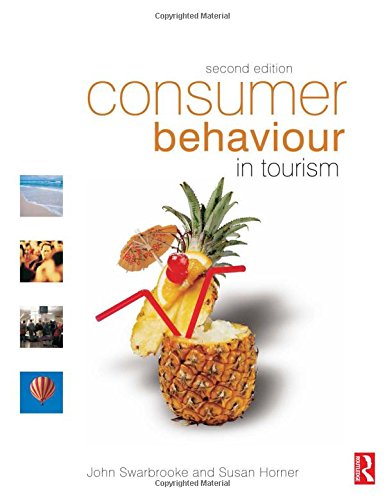Consumer Behaviour in Tourism, Second Edition pdf download
Par prince manuel le lundi, février 27 2017, 22:48 - Lien permanent
Consumer Behaviour in Tourism, Second Edition by John Swarbrooke, Susan Horner


Download eBook
Consumer Behaviour in Tourism, Second Edition John Swarbrooke, Susan Horner ebook
Page: 440
ISBN: 0750667354, 9780080466958
Publisher:
Format: pdf
'Tourism Industry Marketing Based On Consumer Behaviour Research'. Luxury consumer behavior in Mainland China: What exists behind the facade of new wealth? A major study of online consumer behaviour and travel buying in Germany suggests the impact of social media on travel decision making has been exaggerated and remains way below the impact of traditional media. I recently wrote about Big Data and how creative people might get left behind in the great rush to mine the data for insights into consumer behavior. The study by Also at ITB, market analyst IPK International released figures suggesting 54% of travel bookers worldwide and 64% in western Europe book online – including domestic rail trips – but just 7% use social media in “travel planning”. Journeys of Discovery in Volunteer Tourism. (2002) Principles of services marketing (2nd ed.) Upper Saddle River NJ: Prentice Hall. Leisure Marketing A Global Perspective. International Handbook on the Economics of Tourism. The overall objective of the spa consumer research is to have a better understanding of consumer behaviours and perception, including current trends of treatments and therapies, buying behavior and the decision making process. Due to the social and physical environment, humans tend to act or behave in a certain manner depending on the setting. John Swarbrooke, Susan Horner Consumer Behaviour in Tourism, Second Edition. Consumption behaviour, likewise, reflects human behaviour, . For those who participate in the online survey have the chance to win unique prizes such as the newly released Spa Design book Top Exotic Spa, Thailand as well as 2×2 night stay at the prestigious Imperial Queen's Park Hotel, Bangkok. This second edition includes new chapters on ecotourists, destination image and choice, terrorism and the tourism market, the internet and tourist behaviour and the rise of the no frills markets. International travellers are concerned about safety and security, price and reputation Destination websites are the #1 source of travel information A global study of CNN consumers' travel perceptions and behavioural trends has revealed that safety and security 50% use four or more main information sources when looking for destinations; Destination specific websites lead the way as a source of travel information (57%) with travel content sites (55%) a close second. Human behaviour is inconsistent by nature.